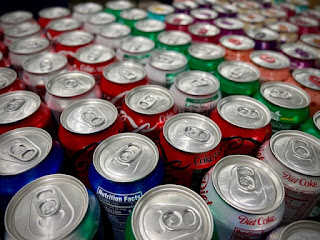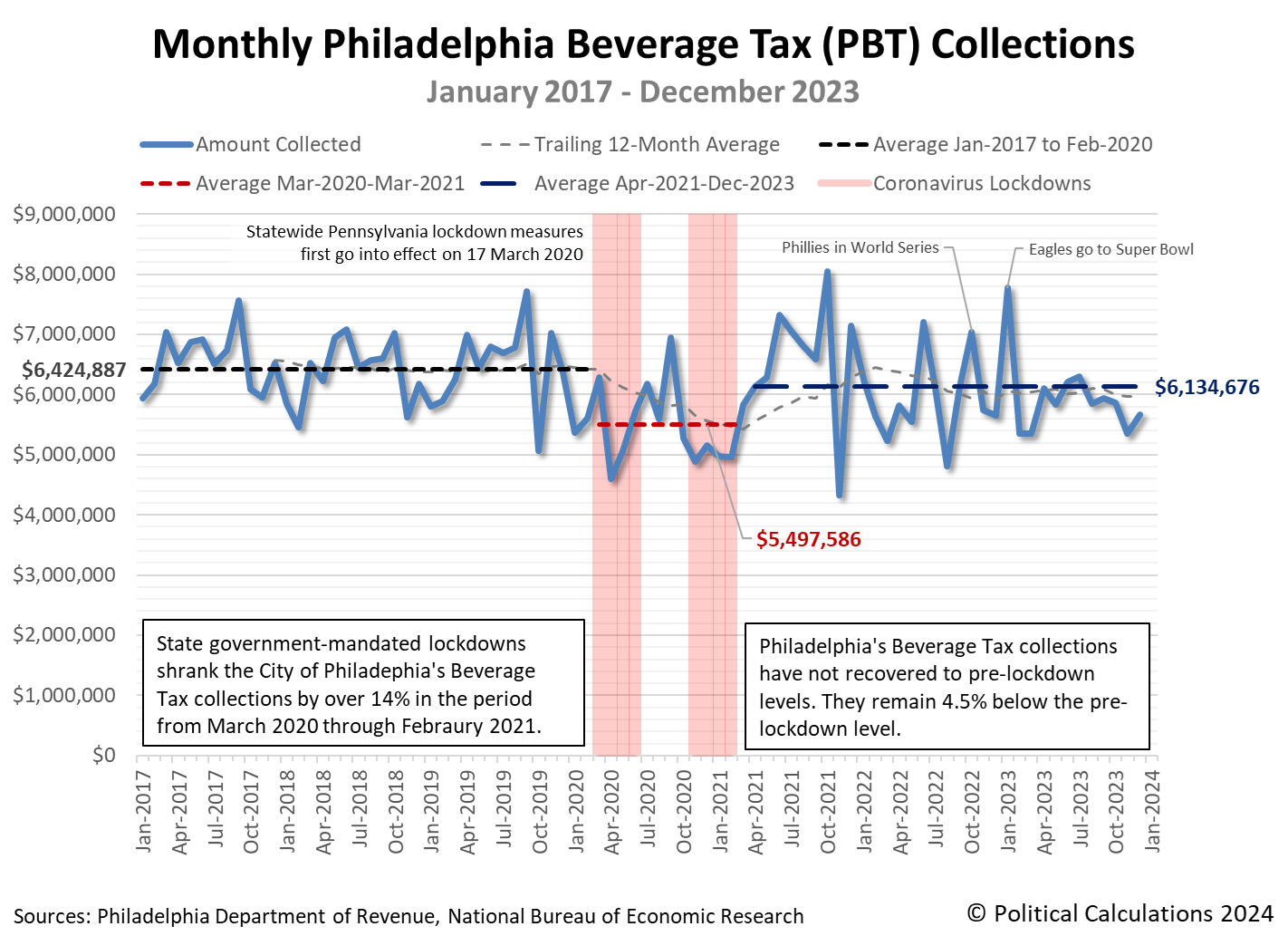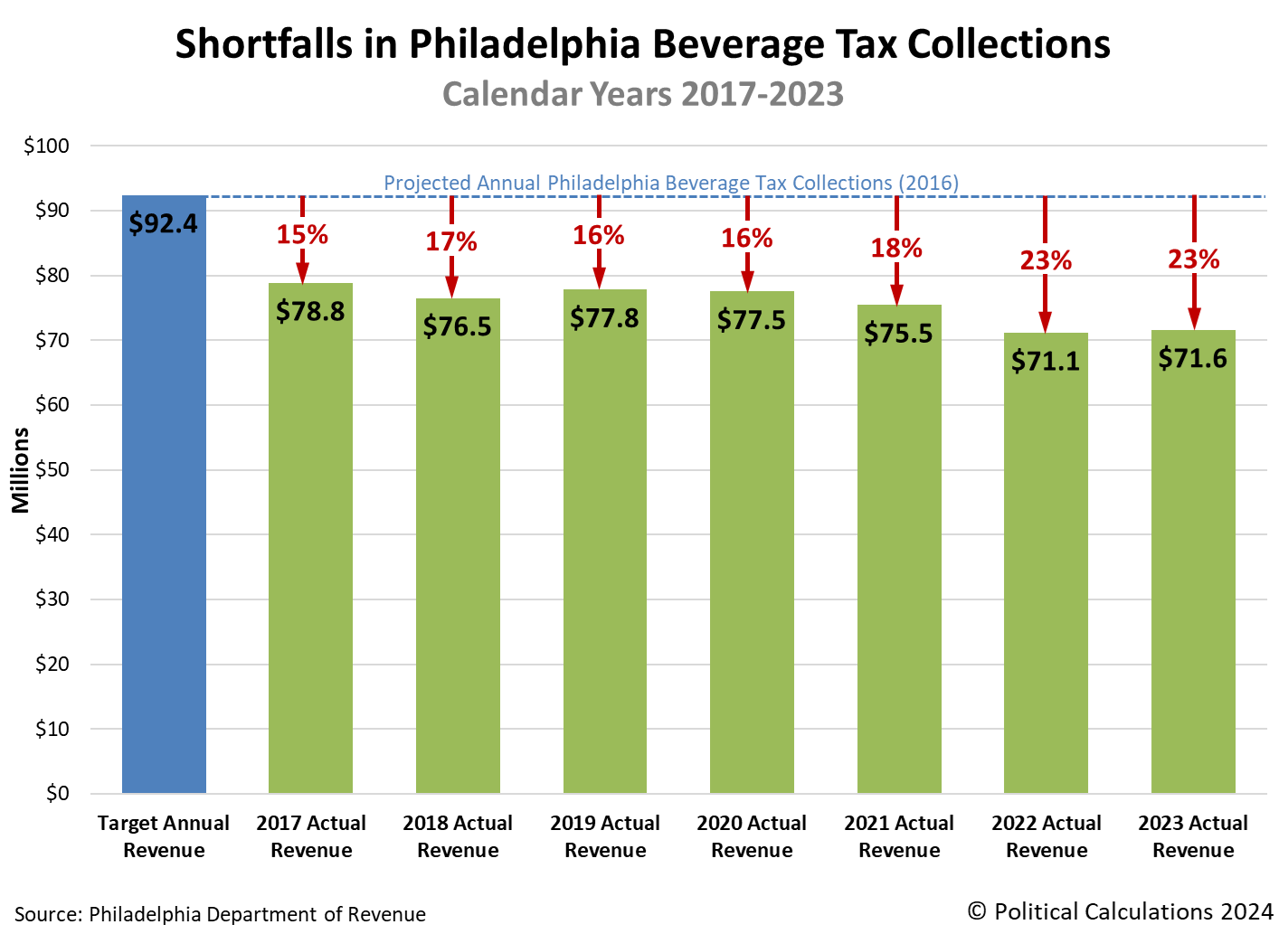In 2016, the City of Philadelphia imposed its infamous soda tax. Starting in January 2017, the city has collected 1.5 cents on every ounce of non-alcoholic carbonated beverages distributed for retail sale within Philadelphia's city limits. When it passed the Philadelphia Beverage Tax (PBT), as it's officially known, city officials were counting on it delivering $92.4 million per year to the city treasury.
The Philadelphia Beverage Tax has always fallen short of that target. Before we show you how much it has been falling short, let's look at the city's recorded revenue from the PBT for each month from January 2017 through December 2023.
We've identified three main periods in the following chart. The period prior to the coronavirus pandemic lockdowns, which ran from January 2017 through February 2020. The period during which the state of Pennsylvania mandated two separate lockdowns of state residents, which together ran from March 2020 through March 2021. The third period is the post-lockdown period, which runs from April 2020 through December 2023.
In the pre-lockdown period, Philadelphia collected an average of $6.42 million per month from the PBT. During the lockdowns, that monthly average dropped to about $5.50 million. After the lockdowns were lifted, the city has collected an average of $6.13 million per month.
Now, let's add up the monthly data to get the full calendar year tax collections data. We've done that in the next chart, where we find that Philadelphia's soda tax collections aren't just falling chronically short, the amount by which they are falling short has grown larger.
From 2017 through 2020, we see the Philadelphia's soda tax collections ranged between $76.5 million and $78.8 million, which represent shortfalls of 15-17% with respect to the city's original target. But those shortfalls have increased in the period since the lockdowns were lifted. The city's annual revenues from its soda tax have dropped below $72 million in 2022 and 2023, which is 23% below the amount they originally thought they were going to collect each year from it.
These chronic and growing shortfalls mean city officials aren't getting anywhere close to the money they counted on to fund "free" pre-K preschool services for Philadelphia residents and to pay for improvements to city schools, parks, and other facilities, all of which have fallen short of the promises made by city officials.
Reference
City of Philadelphia. Department of Revenue. City Monthly Revenue Collections. [Online Database]. Accessed 5 May 2024.
Image credit: Photo by Charlie Wollborg on Unsplash.
Welcome to the blogosphere's toolchest! Here, unlike other blogs dedicated to analyzing current events, we create easy-to-use, simple tools to do the math related to them so you can get in on the action too! If you would like to learn more about these tools, or if you would like to contribute ideas to develop for this blog, please e-mail us at:
ironman at politicalcalculations
Thanks in advance!
Closing values for previous trading day.
This site is primarily powered by:
CSS Validation
RSS Site Feed
JavaScript
The tools on this site are built using JavaScript. If you would like to learn more, one of the best free resources on the web is available at W3Schools.com.


